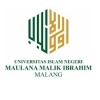USING GROUP DISCUSSION TO IMPROVE STUDENTS’ SPEAKING FLUENCY
Abstract
every language learner is mastering the target language. Likewise in
English, the learners are regarded mastering English when they can
produce the sound of English itself in the form of good communication
toward the others. Nevertheless, teaching English is a complex process,
since it involves some activities started from preparation until evaluation.
In addition, there are some barriers regarding teaching speaking, i.e the
number of students, teacher’s competence, and even students’ problems.
Although teaching speaking is a kind of difficult job, still there is a way to
overcome some stated problems; group discussion. So, this research is
aiming at the implementation of group discussion to improve students’
speaking fluency. To achieve the research objectives, the design of the
research is classroom action research which involves four steps, they are
planning, implementing, observing, and reflecting. The subject research is
the students of Bahasa Indonesia Department semester II of University of
Muhammadiyah Malang who have different English proficiency
background. Data collection method used is preliminary observation,
indepth interviews, participatory observation, and documentation. The
data gathered will be analyzed by using the qualitative analysis involving
reducing data, displaying data, verifying data and taking conclusion. Based
on the results, it can be stated that the implementation of group
discussion in speaking course can improve the students’ speaking fluency.
Full Text:
PDFReferences
Arikunto, S. (2002). Prosedur Penelitian: Suatu Pendekatan Praktek. Jakarta: Rineka Cipta
Barbara, S. (2003). Using Cooperative Learning Group (online).
http://www.oic.iducsb.edu/TA/hdbk/ta3-5.html. Accessed January 25, 2009
Bennett, B., Rolheiser, C., Stevahn, L. (1991). Small Group Discussion (online),
http://wwwfp.education.tas.gov.au/english/smallgroup.htm. Accessed January 25, 2009
Brown, H. D. (2000). Principle of Language Learning and Teaching. San Francisco: Longman
Burkart, G. S. (1998). Teaching Speaking (online).
http://www.nclr.org/essential/speaking/stratspeak.htm. Accessed January 25, 2009
Bygate, M. (2000). Language Teaching (A Scheme for Teacher Education): Speaking. New York: Oxford University Press
Fulcher, G. (2003). Testing Second Language Speaking. Pearson: Longman
Galanes, A, B. (2004). Effective Group Discussion: Theory and Practice. New York: Mc Graw-Hill
Hutchinson, T. and Alan. W. (2002). English for Specific Purposes: A Learning-Centered Approach. Cambridge: Cambridge University Press
Sadtono, E. (1995). Prespektif Pengajaran Bahasa Inggris di Indonesia. Malang: Seksi Kajian Bahasa dan Seni FPBS IKIP Malang
Trianto. (2007). Model-model Pembelajaran Inovatif Berorientasi Konstruksivistik. Jakarta: Prestasi Pustaka
Ur, P. (2003). A Course in Language Teaching: Practice and Theory. Cambridge: Cambridge University Press
DOI: https://doi.org/10.18860/jeasp.v1i1.5242
Refbacks
- There are currently no refbacks.

This work is licensed under a Creative Commons Attribution-ShareAlike 4.0 International License.







Editorial Office:
Pusat Pengembangan Bahasa
Program Khusus Pengembangan Bahasa Inggris (PKPBI)
Universitas Islam Negeri Maulana Malik Ibrahim Malang
Gedung C lantai 1
Jl. Gajayana No 50 Kota Malang, Jawa Timur, Indonesia
Kode Pos 65144, Telp/Fax : (0341) 570872
Email: jeasp@uin-malang.ac.id
JEASP : Journal of English for Academic and Specific Purposes is licensed under a Creative Commons Attribution-ShareAlike 4.0 International











